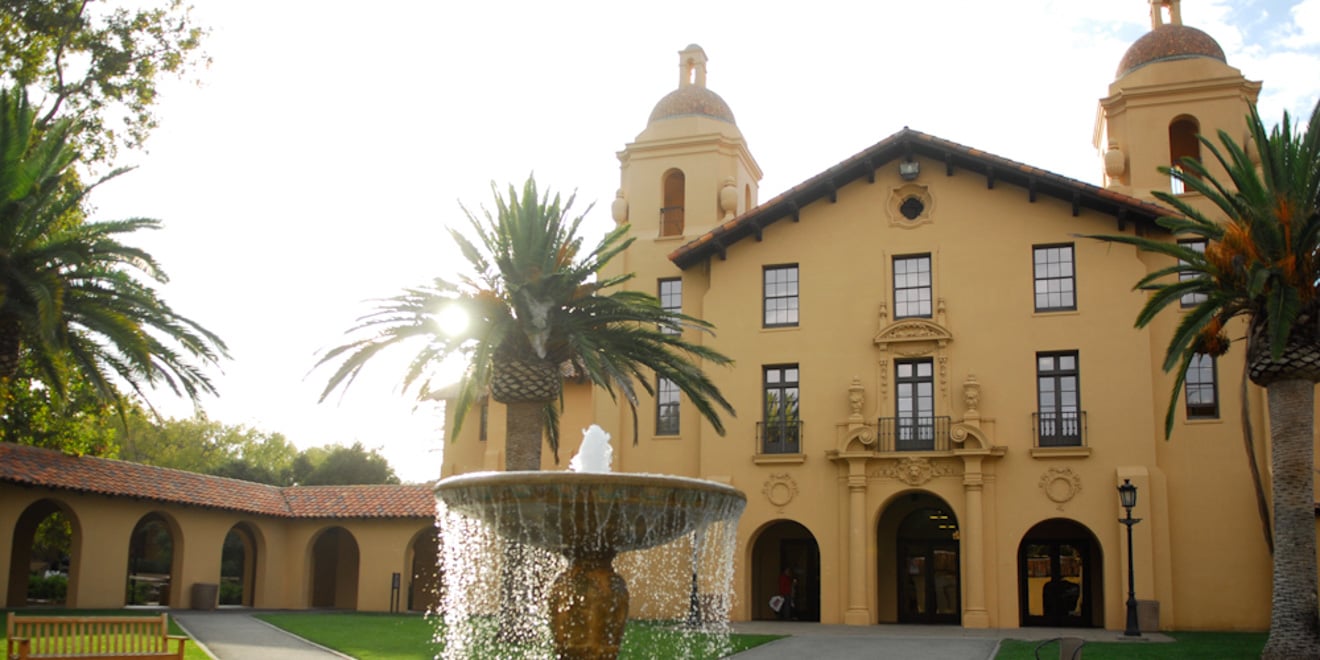In its fourth meeting, the 20th Undergraduate Senate heard a proposal from Graduate Student Council (GSC) member Caleb Smith ’17 M.A. ’18 to broadly reform the ASSU Constitution. Undergraduate Senator Gabe Rosen ’19 also introduced an early version of a civic engagement bill, and the meeting closed with a discussion on the shortage of applicants for student roles on university committees.
Smith, who is also a Daily staffer, proposed sweeping reforms to the ASSU’s legislative, electoral and funding systems, including combining the Undergraduate Senate and Graduate Student Council, introducing proportional representation via Stanford-specific political parties to Senate elections and abolishing waivers for ASSU fees.
Under Smith’s system, the Senate and GSC would become a single, 30-member body called the Student Senate. Within the 30 seats, 10 would be reserved for undergraduates, 10 would be reserved for graduate students and 10 would be at large.
In his presentation to the Undergraduate Senate, Smith argued that a combined legislature would streamline the grants application process for student groups, especially those that have both undergraduate and graduate student members. The combined body would also allow undergraduate and graduate students to better work together on issues of shared concern such as sexual assault.
“The health and wellbeing of graduate students is a direct benefit to undergraduates, and vice versa,” Smith said.
Undergraduate and graduate students have shared one legislative body before. According to Nanci Howe, the Associate Dean and Director of Student Activities and Leadership, the two bodies split in 1996 because graduate students felt that their views were not sufficiently represented in the joint legislature.
“A coterm student [such as Smith] is really much more like an undergrad,” Howe said. “Students that were voicing their opinions were masters students coming from other schools, Ph.D. students, professional school students and international students who really have a very different experience.”
Smith’s proposed changes to the legislative system also include creating a new body made of former senators and other student group leaders to serve as a reservoir of institutional knowledge, a gap Smith stressed as critical given the high turnover among senators. For the past two election cycles, Rosen has been the only incumbent senator to run for reelection.
The second key aspect of Smith’s plan, electoral reforms, would require candidates to form political parties to nominate candidates to Student Senate. Rather than vote for specific candidates, students would vote for a clearly-defined political party. Election to the Senate would at that point be based on proportional representation of each party.
Several Senators raised concerns about political parties stifling “independence of thought,” as Senator Jamie Seney ’21 put it.
“While I think that this is intended to promote diversity of thought, it will instead force people to sign up for a very narrow platform where they’ll have less room to deviate,” said Senator Matt Wigler ’19.
Smith emphasized that the political parties would not be tied to outside parties.
“They would basically be a group of like-minded students who would get together and nominate people to run for student government,” said Smith. “Student government representatives would be able to create them. Other student groups would be able to create them. The particular requirements vary depending on how many there are, so there’s always enough to be competitive, but not too many to keep track of.”
In support of Smith’s proposal, Rosen argued that political parties already essentially exist on campus.
“For the past three election cycles, I’ve had to create my own independent coalitions of people with a variety of diverse candidates in order to break into the political space here,” Rosen said. “I just think that bringing forward the underlying power structures and dynamics that are in place that govern the elections on this campus is actually in the name and interest of transparency.”
Finally, Smith’s proposed funding changes include maintaining different ASSU fee levels for undergraduates and graduate students but eliminating fee waivers. In addition, students would no longer vote on all annual grants, although students would be able to petition to add individual grants to the ballot.
Smith argued that the waivers, originally instituted to allow students to object on moral grounds to student groups using their money in ways they did not agree with, have since become a way for students to avoid paying extra fees.
Other senators, however, raised concerns about the effect eliminating fee waivers could have on the first-generation low-income community and others for whom the ASSU fees are a financial hardship.
ASSU Executive Shanta Katipamula ’19, Elias and former Senator Katie Hufker ’19 all emphasized the importance of a long-term deliberative process on such broad-sweeping changes. Katipamula suggested that senators take the summer to develop ideas for reform, and Elias raised the idea that a Senate committee could be formed to deal with the issue. Hufker also noted that such changes might be more politically feasible as a few targeted amendments in the spring elections, when reforms would be voted on by the student body. Smith, notably, will be completing his coterm this spring.
After discussion of Smith’s bill closed, Rosen introduced a preliminary draft of a civic engagement bill aimed at increasing student participation in local, state and national elections. The bill would create a civic engagement fund that would provide stipends for civic engagement activities at a dorm level.
The meeting ended on a discussion of student nominees to University committees. Some seats remain empty because the nominations commission did not receive enough applications, resulting in committees meeting without student representatives.
“We have been fighting a really hard fight since before I was on Senate of encouraging the University to use NomComm,” said Katipamula. “If the legislative committees drag their feet in terms of approving nominees to University committees, they will continue meeting without students, or they will circumvent ASSU processes and pick their own students, which we’ve seen to be incredibly ineffective in representing student opinion.”
Contact Erin Woo at erinkwoo ‘at’ stanford.edu.
